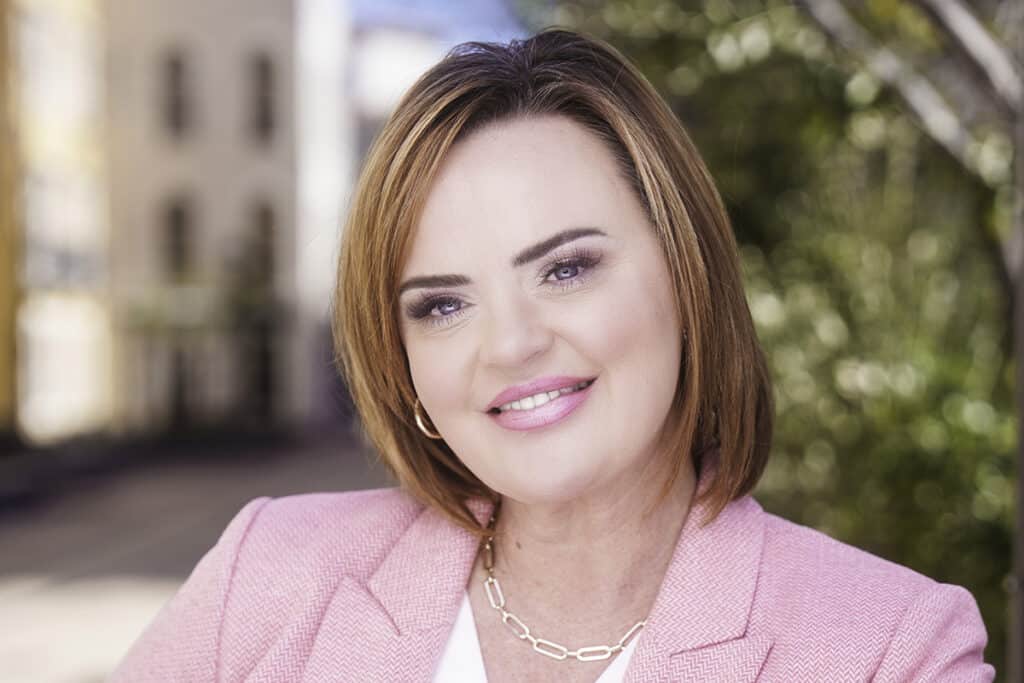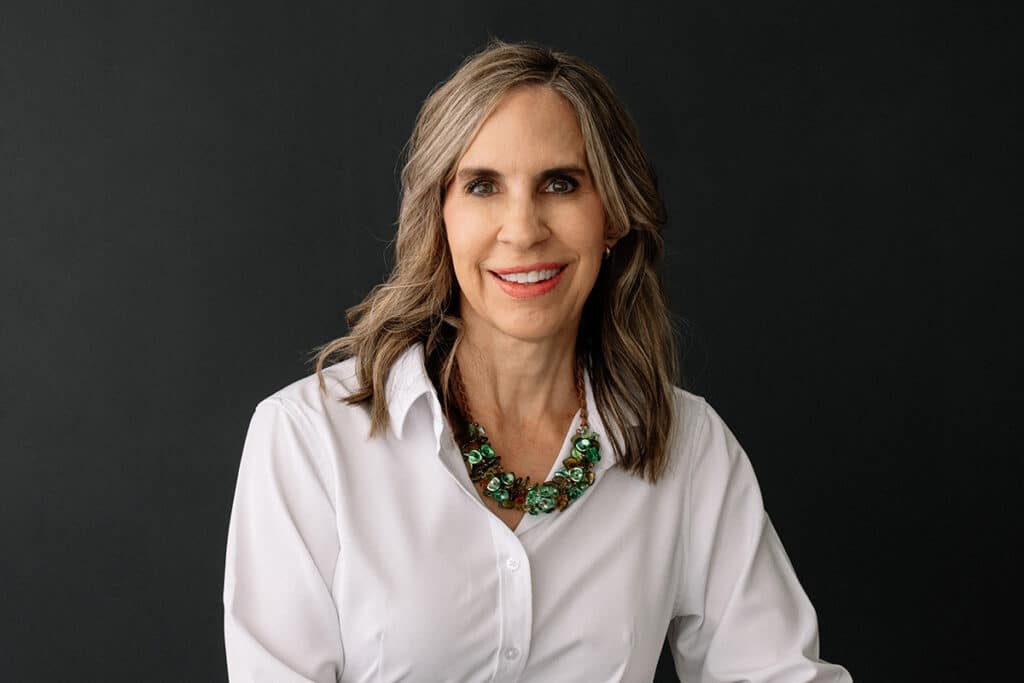Anyone who has ever faced a frightening medical diagnosis like breast cancer knows the importance of having a specialist who understands the most up-to-date developments in technology, medicine, treatments and tests in the battle against the disease. But it’s also important that a doctor truly empathizes with the patient and understands what fears and questions she faces.
San Antonio women who have either a history of breast cancer in their families or who have faced a diagnosis of cancer will find comfort in knowing Dr. Jui-Lien “Lillian” Chou understands all that.
As a cancer survivor herself, Dr. Chou recalls the sharp jolt of hearing of her own terrifying diagnosis. Over the next months and years, she, too, faced the same fears and frustrations her patients have had to endure. Now seven years cancer-free, Dr. Chou says she has not only used that experience to become a better and more empathetic doctor but also one who is equipped with the best technology so she may ensure that women have the best cancer imaging tools available today.
Dr. Chou, born in Taiwan, received her medical degree at the National Taiwan University in 1980. She later moved to Texas, where she trained in radiation oncology at the University of Texas Health Science Center in San Antonio and then the Baylor College of Medicine in Houston. In 2001, she opened the Lubbock Cancer Center and, later, Wellness Lubbock. Today, she also has the Aurora Breast Center in San Antonio.
In December of 2003, the last thing on Dr. Chou’s mind was her health. She felt fine on that winter day during her routine annual mammogram and ultrasound screening and never considered she might have cancer. After all, she had no family history of cancer and no reason to believe she’d ever develop it. She didn’t smoke, and she was a doctor who took care of herself and had regular checkups and screenings such as mammograms. It wasn’t until nearly a year later; the following September, that Dr. Chou noticed a sore spot on her breast that she realized could be something serious.
Dr. Chou then underwent tests that revealed she had a half-inch tumor that it appeared to be cancerous. A pathology report following a biopsy of the tumor held the result she dreaded: She had an aggressive form of breast cancer in her left breast.
“The discovery turned my world upside down,” she recalls. “I was frightened, and so just a few days later I opted to have a mastectomy. I was devastated.” But rather than wallowing in grief, Dr. Chou went to work with the pathologist and her medical team. “I underwent eight rounds of chemotherapy over the next six months, but throughout that time of my treatment, I kept working as a radiation oncologist,” she says. Since her annual mammograms (in which the tissue was noted to be very dense) failed to detect her right breast cancer, Dr. Chou elected to have a breast MRI in addition to a mammogram and ultrasound of her remaining breast following her completion of chemotherapy.
“In April of 2005, the Breast MRI scan revealed a tumor that had not shown up on the mammogram or the ultrasound I had following my cancer treatment. I was shocked and devastated. I had just gone through a battle with breast cancer, and now I was facing it again,” she says. “It was then I felt that fear had conquered me, and I decided to have a second mastectomy. The tumor turned out to be a fibroadenoma, which was benign. I was happy that it was benign, but I was very sad that I lost my breasts. Most of all, I kept wondering why the mammograms and ultrasound studies failed to detect my breast tumors. What technology could have caught this earlier on?”
After winning her battle with breast cancer, such questions continued to haunt Dr. Chou, and she wanted to do all she could to ensure that no other woman need be faced with the diagnosis of aggressive breast cancer or have to decide upon a mastectomy, simply because the cancer wasn’t detected as early as possible. She decided she wanted to get the best tools available to detect cancer and to make her practice a comprehensive breast care clinic.
“We cannot prevent most breast cancers, but we have more tools to catch the cancer early enough that women don’t have to die,” says Dr. Chou, who says that is her goal now — to utilize the very best that science, medicine and technology have to offer in the way of imaging and cancer screening. She also feels, in retrospect, that having mastectomies were the wrong course for dealing with the localized cancer she’d had. She now believes that she would have been diagnosed earlier and avoided such invasive surgery and chemotherapy if she had had routine breast MRIs, in addition to the annual mammograms that had shown very dense breast tissue.
“Most of what we do at Aurora Breast Center of San Antonio is to diagnose and treat our patients earlier and with more accuracy with MRI technology,” Dr. Chou says, “We offer compassionate care with state-of-the-art technology. We are the only facility in San Antonio to feature the Aurora® Dedicated Breast MRI System. We offer comprehensive breast imaging, including digital mammograms, breast ultrasounds and breast MRIs. In this way, we are absolutely able to minimize the time gap between diagnosis and treatment of cancer by amalgamating services under one roof.
“The Aurora MRI System can detect cancer better than traditional breast imaging such as mammogram and ultrasound,” explains Dr. Chou. “This means we can get the most accurate detailed image possible, which helps us detect even the slightest anomaly.”
According to www.auroramri.com, “The increased level of detail that MRI offers truly helps specialists in making more informed diagnoses. Breast MRI provides 3-D pictures of the breasts, the chest wall and the lymph nodes located under each arm. These high-resolution bilateral images have allowed specialists to make earlier and more accurate diagnoses.”
For the Aurora® Dedicated Breast MRI, a woman will lie face down with an area allowing the breasts to be free for a complete 3-D scan. In this way, Dr. Chou and her team can have the clearest and most complete image possible, she explains. “Properly diagnosing and treating breast cancer can be a complex process, and patients need the right access to technology and answers. We also give specialized consultations to women who, because of family history or their own medical history, have a greater risk of developing breast cancer—giving them the tools they need to determine their probability of developing cancer and the best technology available to detect it early on if it develops,” she says.
Together with her colleague, Dr. Paromita Datta, Dr. Chou offers women digital mammograms, breast ultrasound, the Aurora Dedicated Breast MRI, IGCNBB/ Image-Guided Core Needle Breast Biopsies, a full breast care clinic, consultations, diagnostics and breast cancer therapy.
It didn’t take cancer to make Dr. Chou a good doctor—but her experience did make her a better one. Dr. Chou’s own victory over breast cancer changed her life, and now it helps her save the lives of others. “It’s possible to detect breast cancer earlier now than ever before,” says Dr. Chou. “What tremendous peace that allows women today.”




